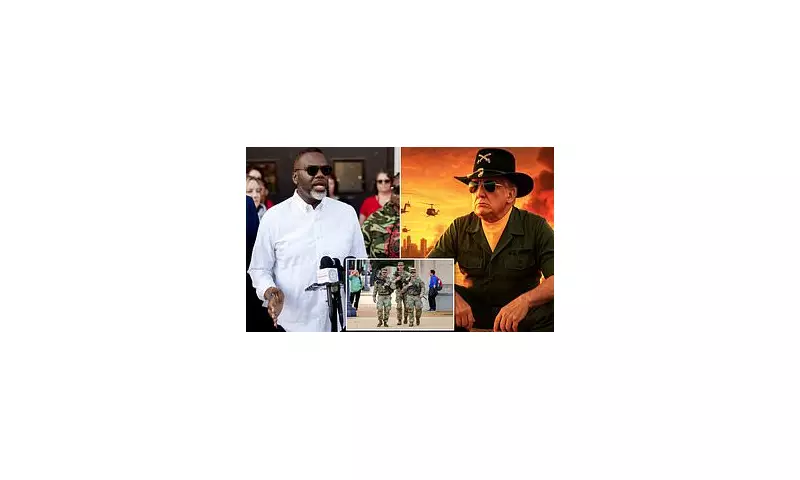
Chicago Mayor Brandon Johnson has launched a staunch defence of his city, delivering a blistering rebuttal to former President Donald Trump's controversial suggestion that a future administration might deploy the military to tackle crime in Democrat-run cities.
The fiery political exchange erupted after Trump, in a recent interview, pointed to Chicago's crime rates and floated the idea of using "the military on the ground" in certain urban areas. The remarks have been widely interpreted as a direct threat to cities with Democratic leadership.
A Mayor's Fierce Rebuttal
Speaking with unwavering resolve, Mayor Johnson condemned the proposal as not just inflammatory, but fundamentally un-American. "The statement from the former president is not only reckless, it's just not true," Johnson stated, addressing the media. He positioned Trump's comments as a direct assault on the core principles of the nation's democracy.
"We are not a city, nor a country, that would ever condone the military being deployed on American soil to intervene in American cities," he asserted, framing the issue as a matter of constitutional integrity and civic values.
Chicago's Stance: Unity Over Division
Rather than capitulating to the rhetoric, Mayor Johnson pivoted to a message of resilience and local strength. He emphasised Chicago's ongoing efforts to address complex public safety challenges through community investment and collaboration, not through militaristic force.
"We are committed to building a better, stronger, and safer Chicago here," he declared, positioning the city's approach in stark contrast to the top-down, aggressive strategy hinted at by Trump. His response served as a powerful affirmation of local governance and a rejection of federal overreach.
National Implications and the Political Divide
This war of words highlights the deepening political schisms in the United States, where urban governance and national policy often clash. Trump's comments have ignited a fresh debate about the limits of presidential power and the role of the federal government in local affairs.
Mayor Johnson's defiant response is likely to resonate with other Democratic leaders in major metropolitan areas, setting the stage for continued ideological battles as the next presidential election cycle approaches. The incident underscores the ongoing tension between Trump's political brand and the policies of progressive city governments.





